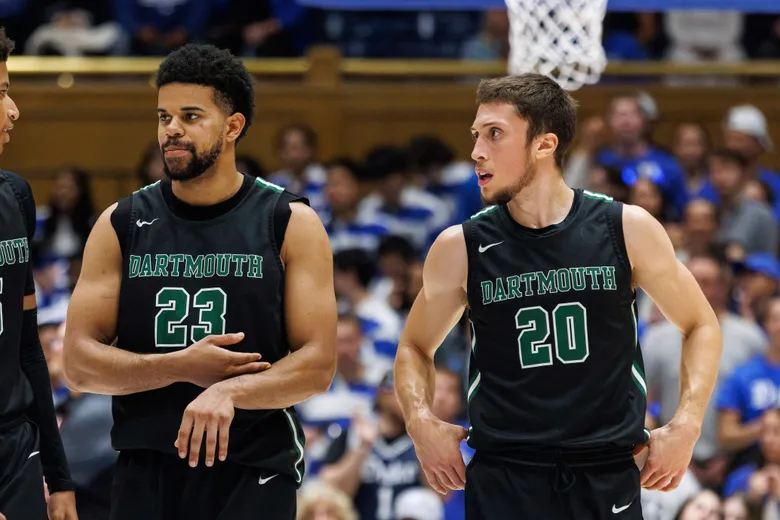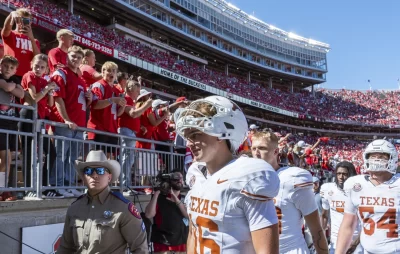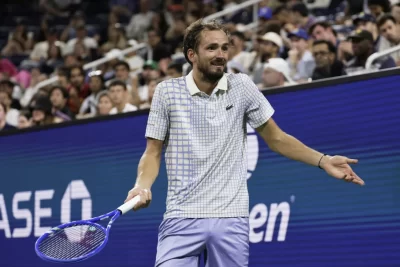
Romeo Myrthil and his Dartmouth teammates are pursuing multiple goals to start the college basketball season.
There’s winning games. And then there’s the possibility of accomplishing something on a much bigger scale: changing college athletics through the team’s attempt to unionize.
Nearly two months have passed since the team signed a petition seeking representation by the Service Employees International Union, which already represents some school employees. They’re focused on the start of the basketball season, which began with Monday night’s loss at No. 2 Duke.
Their unionization effort lingers in the background, another challenge to the norms of college athletics in a time with athletes transferring freely through the portal and making endorsement money through the use of their name, image and likeness (NIL).
“I feel like NIL’s been moving on a lot and changing the landscape of college basketball,” Myrthil told The Associated Press after the Duke game. “This could be a step that changes it even further, to make the students earn what they’re worth.”
“I mean, if it can go that far (beyond the Ivy), it’ll go that far — if it’s necessary, then definitely,” McRae told the AP. “I know a lot of guys are getting NIL compensation, so that covers a lot. But definitely we’d love to see it.”
College conferences and schools have opposed efforts to pursue unionization for college athletes, arguing it would fundamentally change a system in which athletes don’t share in exploding revenues and TV money generated by their own play. Rather, the argument has been that the athletes should receive only their scholarships as compensation.
Yet the Ivy League doesn’t offer athletic scholarships as are common in the other conferences. Dartmouth College lawyers have argued to the National Labor Relations Board that players shouldn’t be considered employees.
“A lot of the players on the team work jobs while we play,” McRae said. “And while players have a little bit of money, the Ivy League doesn’t give out scholarships, so we’re not on the same financial basis that other teams are. So we made that union to try to change that.”
McRae, a senior guard, said there are some players who are “really deep” into the unionization effort, and they can offer updates in meetings when necessary.
“We definitely separate it from basketball and academics,” McRae said. “There’s no mixing, there’s no in-between. Two separate things. When it’s time to play basketball, it’s time to play basketball. When it’s time to do school, it’s time to do school. When it’s time to go to the union, same there.”
That was a message that Myrthil said the players shared with the coaches when they told them they would pursue unionization.
“It was kind of a, ‘Whoa, what?’” said Myrthil, a junior guard.
“Of course, us telling the coaches that we had that in mind, they didn’t really know what to say and all that,” Myrthil said. “But we made it clear from the start, the very first time we mentioned it to them, that this will not affect how we approach basketball and how we act together as a group: with the coaches, without the coaches. That was a clear thing for us to make clear.”
And now?
“We’d love for people to read our statement and see what we say there, because we still stand by that of course,” Myrthil said. “But then, it doesn’t change anything about how we approach our basketball season. … It’s a thing on the side, but the basketball team, Dartmouth, is different from what’s going on off the court.”






